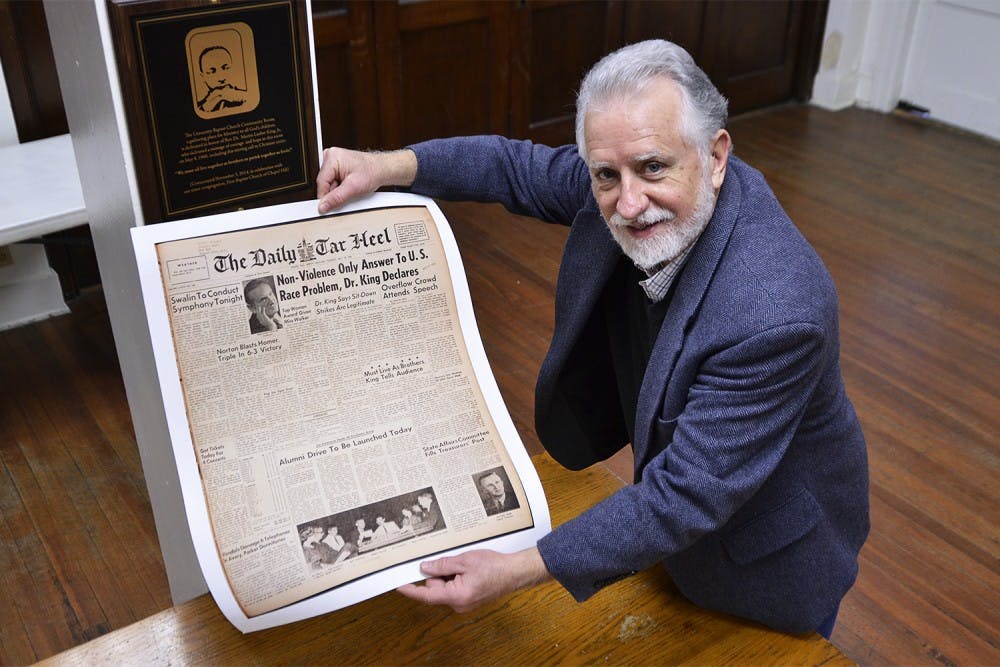For the Rev. Mitchell Simpson, remembering the legacy of his predecessors, both the good and the bad, is of paramount importance.
“In all candor, no matter how powerful the person or the speech, there is no legacy if the speech is not remembered,” he said.
That’s why at University Baptist Church, the oldest fellowship hall is named after Martin Luther King Jr.
In 1960, King came to Chapel Hill and spoke at the invitation of Jim Cansler, a Baptist chaplain at the University at the time. Some of the deacons were openly segregationist and opposed King speaking in a white church, but others, like UNC-system president emeritus Bill Friday, pushed for him to come and speak.
Eventually, they compromised. King would be allowed to come and speak, but he would speak in the fellowship hall, not in the sanctuary.
“At that time, not only the Baptists were conflicted, but every congregation was conflicted,” Simpson said.
Amidst the controversy, Wes Shrader, the pastor of University Baptist at the time, wanted to prepare a comfortable space for King.
George Bell was one of the few people present at dinner the night before the speech.



